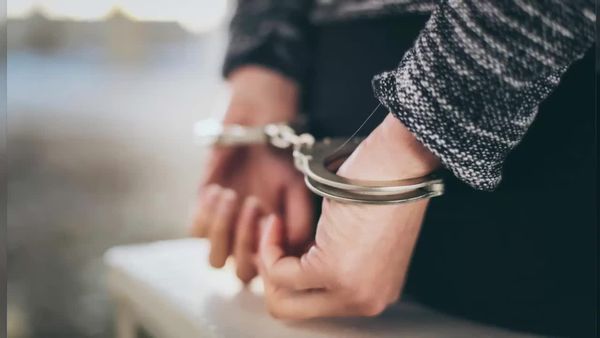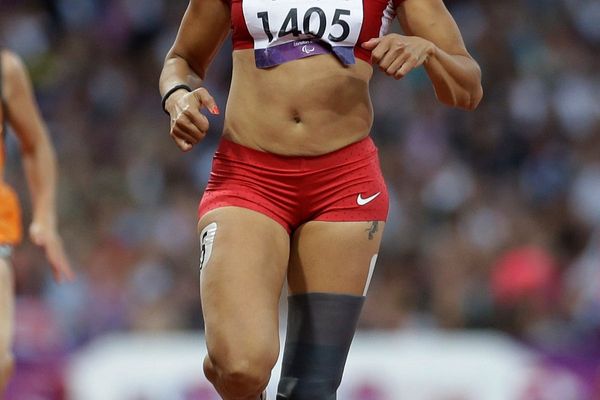For the nomadic Nicolas Anelka, a player who moved 13 times during his playing days, there was one in particular he felt should have been where his roots were placed down.
It was December 2001 when the France international striker joined Liverpool on a mid-season loan from Paris Saint-Germain. With manager Gerard Houllier and assistant Phil Thompson seeking extra firepower for their Premier League title push in the second half of the campaign, Anelka made the Reds his fifth club by the age of 22.
The electric Frenchman enjoyed his time under Houllier and scored five times in 22 appearances before the end of the season and it became widely assumed that the move would be made permanent.
READ MORE: Jorg Schmadtke has already signed perfect Liverpool defender
READ MORE: Everton might have handed Liverpool perfect deal to buy time in transfer market
For reasons that are still to be publicly detailed, the dream would be dashed. An official club statement confirmed the decision, saying: "After a lot of thought we've decided not to make Nicolas Anelka's move from Paris St Germain a permanent one.
"This was a difficult decision and we know that Nicolas will be very disappointed, but the manager has always had to do what he thinks is best for the club and the development of the team."
Houllier would later say: "I don't want to expose the reasons why I didn't want to sign him, but I think he knows why and it has nothing to do with football." Rumours over his brothers, who were acting as his representatives, and their questionable demands swirled, something which the late, great Houllier briefly addressed in 2015. "I wish I had kept Nicolas Anelka," he said. "But his brothers didn’t help him."
Speaking in his 'Misunderstood' documentary that was released in 2020, the player famously nicknamed 'le Sulk' for his broody temperament explained why he thought Liverpool was the place for him.
"Liverpool fans think I didn't want to stay," he said. "They need to know that that wasn't the case. That episode was tragic for me. It's a club where I could have done great things. I did well, they played the game I was looking for and the atmosphere was good. For me there was no question, but obviously that did not suit Mr Houllier."
It's fair to label the decision not to sign Anelka as one of the great missteps of 21st century Liverpool. Or, more specifically, his choice of replacement was.
It's 21 years today since El-Hadji Diouf was given the nod over Anelka. Liverpool struck a £10m deal with French club Lens, confirming the big-money transfer on June 1, 2002, one day after Senegal shocked the planet with a victory over holders France in the opening game of the World Cup.
Diouf would inspire Senegal all the way to the quarter-finals in Japan and it looked Houllier had performed a masterstroke in signing the enigmatic frontman before his profile rocketed after a fine few weeks at the tournament.
The reality once Diouf pitched up at Anfield, however, was anything but. Six goals were scored across his two full seasons with the Reds, a third of which came on his debut in a win over Southampton. He remains, to this day, the only No.9 at Liverpool to go through an entire season without a goal.
The mere mention of the former Senegal star now is enough to induce a wince from those who witnessed his form, attitude and conduct of 21 years ago. Two decades on, it seems those days are remembered all too well from those who were there.
The ECHO reached out to a number of Diouf's ex-team-mates at Liverpool during that era. Interview requests were either politely declined or ignored altogether. "Nothing to say about him! Sorry," was one response. Point taken.
Those who were willing to speak say they noticed a change in Diouf's attitude when he was named as the 2002 African Footballer of the Year in early 2003. It was here, it's claimed, where the wild antics were ramped up and the interest in playing for Liverpool was turned down. For Diouf, it simply did not matter that he was playing for one of the most famous clubs in world football.
Former defender Jon Otsemobor recalls the time he was awoken at around 2am by Diouf and a group of around 10 others, just a few hours before Melwood training, in the mood to party.
"I was still a young lad and I was just disappointed thinking he took my friendship and used it," Otsemobor told the ECHO in 2020. "I felt at the time, when I went into the dressing room, you can't just use me like that, I'm your friend. If he needed a place to stay and all that, fine, but I'm not hosting parties for all the different people who were flying into the country every weekend!"
The party lifestyle was something Diouf embraced as the toiling on the pitch went on. Those close to him at the time speak of a player who would often arrange to meet at the trendy Living Rooms, a frequent haunt of footballers in the early 2000s, before failing to show up, without notice, if a better offer arrived en route.
An altercation with Everton supporters in another city-centre bar is told in great detail. After hearing enough of the goading from Blues fans as he tried to use the gents, Diouf's explosive response - using expletive-ridden phrases unsuitable for print on the family-friendly pages of the ECHO - almost caused a riot, according to those who were there.
There was an aloofness to his personality that overrode a generous streak. It's said that Diouf once invited a Merseyside-based friend out to Senegal to stay with him during the Africa Cup of Nations. The guest was left stranded at Dakar Airport after the pre-arranged transport did not arrive.
"No one came and he dropped my calls," says the guest. "If it wasn't for Salif Diao I would have been snookered! Over three weeks of time [that was meant to be] visiting him, I saw him twice. Once on the beach, once in a nightclub. Neither were arranged!"
It's also claimed Diouf and then club captain Steven Gerrard almost came to blows during a heated pre-season exchange. In an Instagram live over two years ago, Florent Sinama-Pongolle retold the incident.
He said: “At half time, in the dressing room. Stevie G is all like ‘you have to pass, you have to pass’ and [Diouf] just loses it. He didn’t speak English. His English was rubbish.
"They hated each other so much. Steven Gerrard arrives saying: ‘Hey, you f*****’. And [Diouf] couldn’t answer, so he grabs Gerard Houllier and says: ‘Tell him, f*** *** ***’. He came in and said: ‘I’m not his mate, I’ll do him in straight away!'"
For all faults, it is insisted Diouf's generosity was a big character trait. If flights were booked for him by club officials, he would always pay back much more than he owed and was always happy to spend hundreds on clothes for others at Liverpool designer store Wade Smith.
On the pitch, though, he plunged to new depths when he spat at a Celtic fan during a UEFA Cup game in 2003. He was fined £5,000 for the incident and embarrassed his club who shared a great relationship with the Scottish giants.
Houllier later remarked: "His attitude sometimes, particularly his spitting habit, caused us problems. Maybe I should have been more wary of that because, I remember, that he did that once or twice when he was warming up for games. I remember a match at Anfield when he had some problems with West Ham fans. And, of course, what happened at Celtic, when he spat at a Celtic fan, was totally out of line."
For many, that was the final straw. He made his final Liverpool appearance of an 80-game career that was more memorable for its unsavoury incidents in April 2004 before he joined Bolton.
"The worst [team-mate I had] has to be El Hadji Diouf," Jamie Carragher once said. "Actually, I quite enjoyed playing against him as you could kick him then – can’t kick your own players."
Diouf's legacy, two decades later, is one that is marred in controversy only. The 42-year-old's name is regularly floated when the discussion of Liverpool's worst-ever signings is brought up and there are few redeeming times to counter such arguments.
A penny for Nicolas Anelka's thoughts.
A version of this piece was first published in 2022







